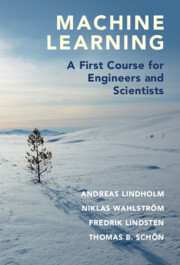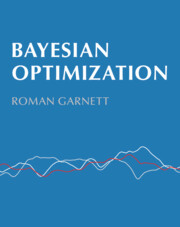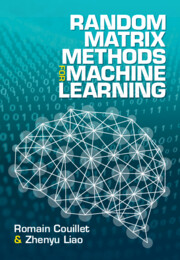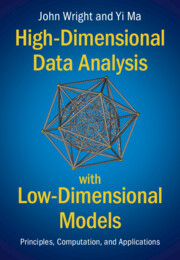Machine Learning
This book introduces machine learning for readers with some background in basic linear algebra, statistics, probability, and programming. In a coherent statistical framework it covers a selection of supervised machine learning methods, from the most fundamental (k-NN, decision trees, linear and logistic regression) to more advanced methods (deep neural networks, support vector machines, Gaussian processes, random forests and boosting), plus commonly-used unsupervised methods (generative modeling, k-means, PCA, autoencoders and generative adversarial networks). Careful explanations and pseudo-code are presented for all methods. The authors maintain a focus on the fundamentals by drawing connections between methods and discussing general concepts such as loss functions, maximum likelihood, the bias-variance decomposition, ensemble averaging, kernels and the Bayesian approach along with generally useful tools such as regularization, cross validation, evaluation metrics and optimization methods. The final chapters offer practical advice for solving real-world supervised machine learning problems and on ethical aspects of modern machine learning.
- The coherent statistical framework highlights the similarities and differences between the different methods
- Introduces each new method in the simplest possible meaningful, setting before presenting the general idea
- Revisits the same data set several times throughout the book
Reviews & endorsements
'An authoritative treatment of modern machine learning, covering a broad range of topics, for readers who want to use and understand machine learning.' Bernhard Schölkopf, Max Planck Institute for Intelligent Systems
'This book provides the perfect introduction to modern machine learning, with an ideal balance between mathematical depth and breadth. Its outstanding clarity and many illustrations make it a perfect tool for self-learning or as a textbook for an introductory machine learning class.' Francis Bach, Inria - Ecole Normale Supérieure
'Lucid and engaging, this book is a brilliant companion to anyone with a numerate background who wants to know what really goes on under the hood in supervised learning. The core theory and rich illustrative examples enable practitioners navigate the jungle of modern machine learning.' Carl Edward Rasmussen, University of Cambridge
'This book provides an excellent introduction to machine learning for engineers and scientists. It covers the main techniques in this exciting area ranging from basic approaches, such as linear regression and principal component analysis, to modern deep learning and generative modelling techniques. The authors have managed to find the right balance between academic rigor, intuition and applications. Required reading for any newcomer interested in this field!' Arnaud Doucet, University of Oxford
'This book strikes a very good balance between accessibility and rigour. It will be a very good companion for the mathematically trained who want to understand the hows and whats of machine learning.' Ole Winther, University of Copenhagen and Technical University of Denmark
Product details
No date availableHardback
9781108843607
350 pages
259 × 182 × 20 mm
0.88kg
Table of Contents
- 1. Introduction
- 2. Supervised learning: a first approach
- 3. Basic parametric models and a statistical perspective on learning
- 4. Understanding, evaluating and improving the performance
- 5. Learning parametric models
- 6. Neural networks and deep learning
- 7. Ensemble methods: Bagging and boosting
- 8. Nonlinear input transformations and kernels
- 9. The Bayesian approach and Gaussian processes
- 10. Generative models and learning from unlabeled data
- 11. User aspects of machine learning
- 12. Ethics in machine learning.







